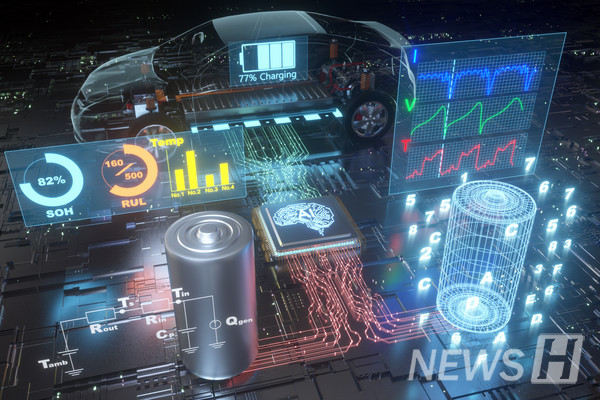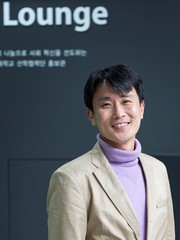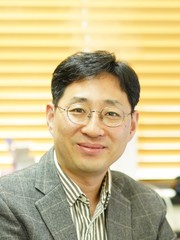Applying AI to physical technology ... Reaching up to 20% improved prediction performance
As the recent paradigm shifts from combustion to electric automobiles, research on lithium batteries is actively being conducted. Since batteries are directly related to the driving distance of electric cars, research on a fast and correct prediction of battery capacity and life is necessary.
In the meantime, Hanyang University announced that on the May 19th, a co-research team by Professor Oh Ki-yong of the School of Mechanical Engineering (adjuncting the Department of Automotive Engineering) developed a next-generation physics-informed artificial intelligence technology. This research was conducted together with Professor Lee Seung-chul of the Department of Mechanical Engineering (POSTECH) and a Ph. D. course researcher Kim Seung-wook.
There are two methods used in predicting battery capacity; one is a physics-informed model that simplifies the inner structure of a battery, and another is a data-informed model that utilizes the electric and mechanical response of a battery. The data-informed technology was not performing well in unlearned data expecting accuracy, although it needs a vast amount of data for learning and this required a next-generation artificial intelligence technology to overcome such limitations.
The research team fused a differentiated impedance-based key parameter extraction technique and a physics-informed neural network to secure the accuracy of the predicting in battery life in an environment, where there are only a few learning data available. This enabled them secure the accuracy and robustness on battery capacity prediction and end-of-life distribution.
Testing the proposed technologies based on more than a hundred battery state-of-health estimations and experiments, it showed up to 20% more improved accuracy and robustness for test batteries with various capacity and life distribution. Through this, they prepared a base of an application of physics-informed artificial intelligence that is robust and trustworthy for various industries.
Professor Lee Seung-chul of POSTECH said, "The main research achievement of this research is that it overcame data-informed artificial intelligence through physics information and it overcame a difficulty in constructing big data by developing a key parameter extraction technique." Professor Oh Ki-yong said in a general review, "This research result is more meaningful as it will be dedicated to the supply of electric cars, it by being applied to a battery life prediction of the next-generation electric vehicles."
In the meantime, this research was performed under the support of a civil-military technology cooperation program and the National Research Foundation of Korea and the research result was recently listed to 「Applied Energy, IF=9.746」, a world-class energy journal.



Click to see the paper:
https://www.sciencedirect.com/science/article/pii/S0306261922004196?via%3Dihub


 '한양위키' 키워드 보기
'한양위키' 키워드 보기